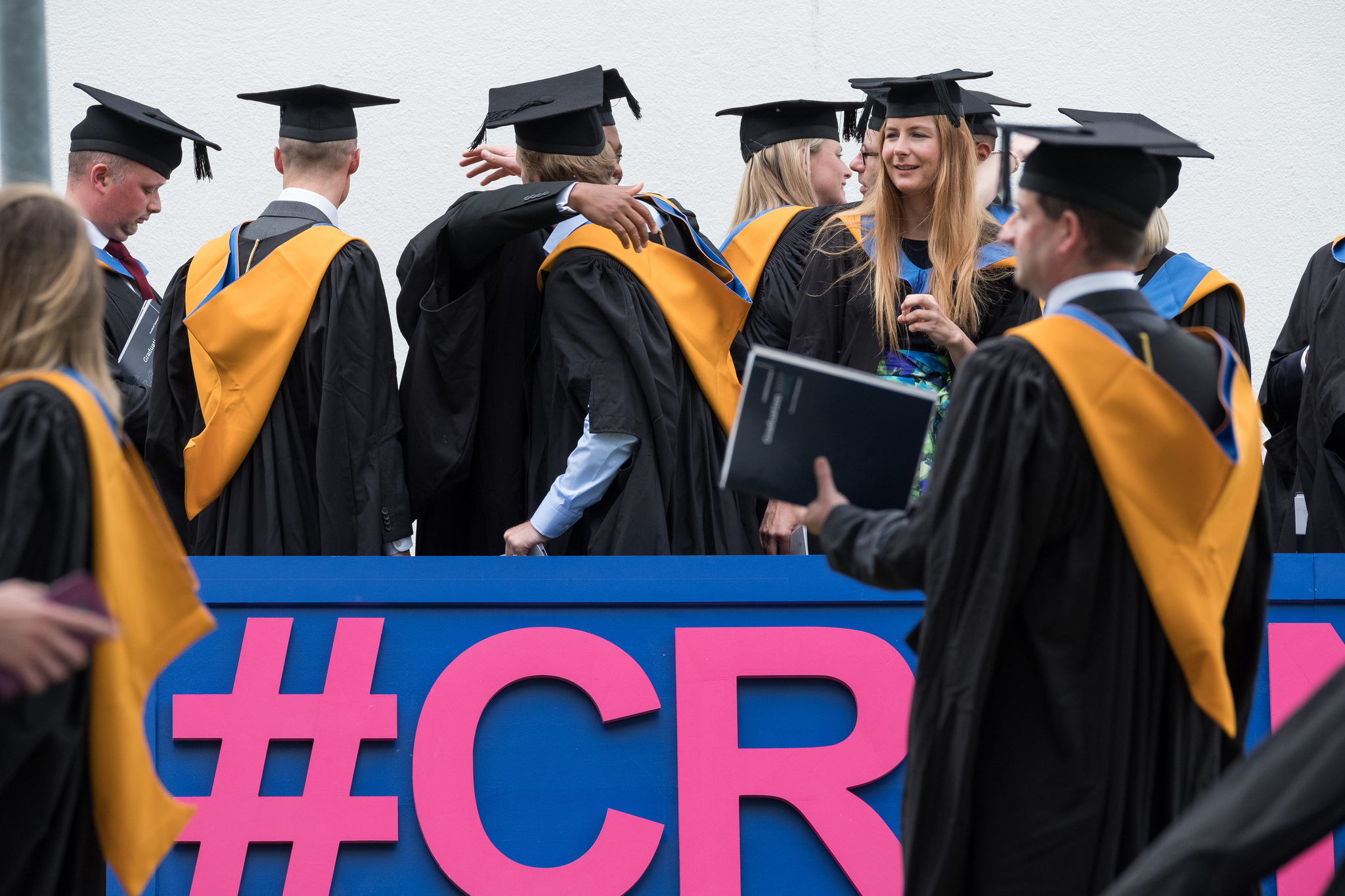Why Cranfield?
26/07/2018

Under this title, you may expect to read a first-hand story from a Cranfield student or alumni. I’m sorry to disappoint you, but that’s not the case. How could I tell anyone about the experience of studying at Cranfield, you might ask? Well, I haven’t studied here but I’m currently working at Cranfield as a post-doctoral researcher (involved in teaching and supervision) and I have a long “career” as a student which I think, somehow, entitles me to have a say about education quality!
When I finished my BSc, MSc and PhD degrees, I had been studying most of my life and it was time to decide what to do next. I had the title “Dr” in front of my name, a bunch of degrees and interest in learning how things were done in other parts of the world. I found a job opportunity at Cranfield to study the impacts and adaptation to climate change in the Indian Himalayas. It was really something I would love to contribute to, so I took the job.
Once here, at Cranfield Water Science Institute, I found myself involved in the academic world from the other side. For the first time, I was part of the process of ‘cooking’ the courses to make sure that they provide our students with the best skills for their professional future. There is a lot of work and enthusiasm put into this task, and it is reflected in our unique course offer.
Our Water MSc courses are closely connected to industry, public institutions and NGOs, organisations that contribute to them with invited talks as well as sponsored group and individual MSc thesis projects, ensuring that courses cover the breadth of current challenges related to water. Those interactions also help students to start building a wide network of contacts, which frequently lead to professional opportunities as soon as they leave Cranfield. The cutting edge projects in which academics are involved also bring the latest science into the classrooms, while the diverse cultural background of academics and students brings together many different and enriching perspectives to problems and solutions.
I was amazed by how much care is put in the entire process, from admissions to graduation, to ensure our students take the most from that year of their lives that they put in our hands. There are many services that students can access too, from career advice or additional training courses, to sports and social activities.
But don’t get me wrong, a one-year MSc at Cranfield is intense and requires that you give your best. No one says it’s easy, but it’s certainly worth it! At least it’s worth it for me to be part of a university like this.
And just in case you don’t trust my judgment… I have asked some Water students to for their experience at Cranfield:
“Cranfield offers highly specialised courses in my field and the close link with industries offers great insights and networking opportunities. In addition, the opportunity to study abroad is really appealing. They offer thought provoking and interactive lectures, and integrate field trips, presentations group exercises and guest speakers, which is something unique in Cranfield.” Cyndi Lou
“The biggest difference in relation to my previous university is fairly direct contact with the teacher – student. I was also surprised by how much a student is taken care of, that they would be well prepared for everything, they understood everything, and that there are many institutions in which one can turn for help.” Barbara Benisiewicz
“I really enjoyed the group project. My MSc at Cranfield gave me the opportunity of working for a company in a multidisciplinary team, which I consider has been a very valuable experience for my future career.” Pablo Martínez Maldonado
Categories & Tags:
Leave a comment on this post:
You might also like…
Company codes – CUSIP, SEDOL, ISIN…. What do they mean and how can you use them in our Library resources?
As you use our many finance resources, you will probably notice unique company identifiers which may be codes or symbols. It is worth spending some time getting to know what these are and which resources ...
Supporting careers in defence through specialist education
As a materials engineer by background, I have always been drawn to fields where technical expertise directly shapes real‑world outcomes. Few sectors exemplify this better than defence. Engineering careers in defence sit at the ...
What being a woman in STEM means to me
STEM is both a way of thinking and a practical toolkit. It sharpens reasoning and equips us to turn ideas into solutions with measurable impact. For me, STEM has never been only about acquiring ...
A woman’s experience in environmental science within defence
When I stepped into the gates of the Defence Academy it was the 30th September 2019. I did not know at the time that this would be the beginning of a long journey as ...
Working on your group project? We can help!
When undertaking a group project, typically you'll need to investigate a topic, decide on a methodology for your investigation, gather and collate information and data, share your findings with each other, and then formally report ...
From passion to purpose: My journey at the Pinnacle of Aviation
By: Sultana Yassin Abdi MSc Air Transport Management, Current Student Born and raised in the vibrant landscape of the UAE, with roots stretching back to Somalia, my life has always been ...






